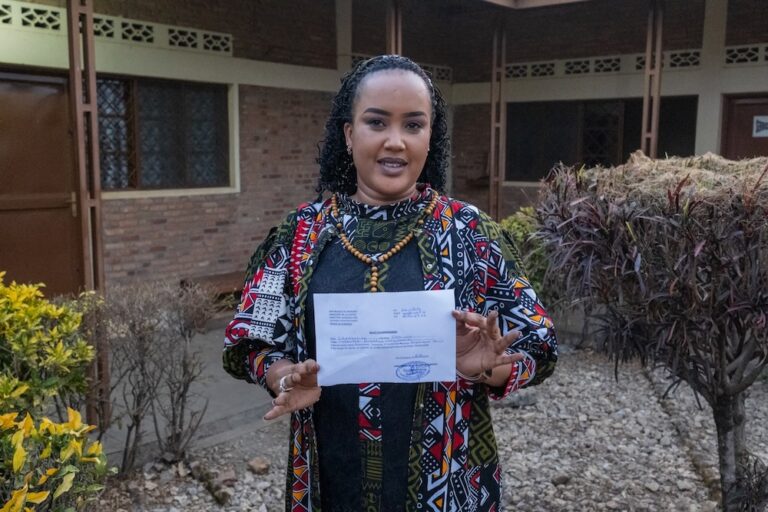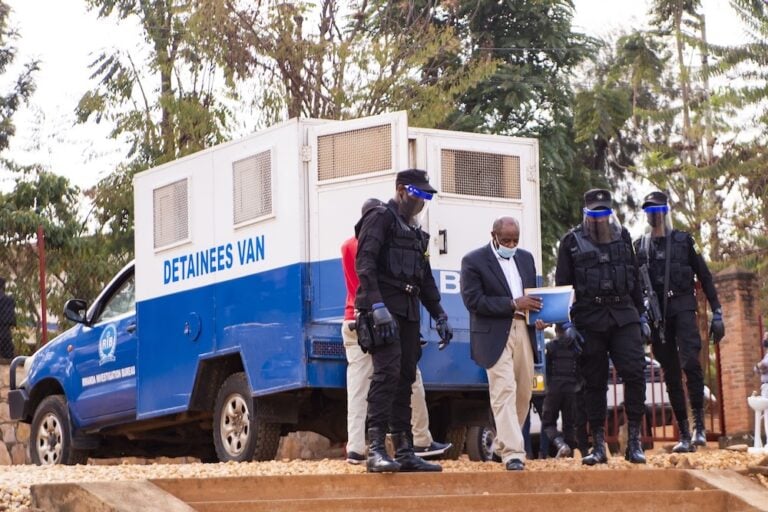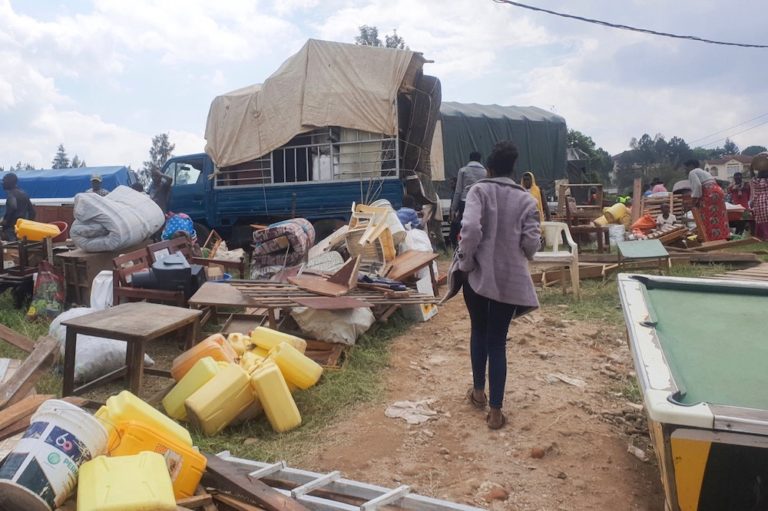(RSF/IFEX) – Former state television journalist Gédéon Mushimiyimana was released from jail on 11 November 2002 after six years in detention for allegedly taking part in the country’s 1994 genocide. In early November, the prosecutor’s office in Gitarama took him and other prisoners to meet the residents of his home village. They made no accusations […]
(RSF/IFEX) – Former state television journalist Gédéon Mushimiyimana was released from jail on 11 November 2002 after six years in detention for allegedly taking part in the country’s 1994 genocide.
In early November, the prosecutor’s office in Gitarama took him and other prisoners to meet the residents of his home village. They made no accusations against him and he was temporarily released a few days later. He will be heard by a traditional grassroots gacaca court in the next few months.
RSF welcomes his release but notes that two other journalists – Dominique Makeli and Tatiana Mukakibibi – have been unjustly imprisoned for several years. The organisation calls on the Rwandan authorities and President Paul Kagame in particular to see to it that they are released immediately.
Mushimiyimana was arrested in Kigali in 1996 and accused of “sending information” to Radio France International (RFI) in which Kagame, who was then vice-president, was described as a “terrorist.” The journalist had met with an RFI reporter who had been in Rwanda a few weeks earlier and had visited the television studios, where Mushimiyimana gave her cassettes of film taken by the station. A few days after his arrest, he was accused of murdering a family during the genocide. He was being held at the prison in the southern town of Butare.
Makeli, formerly with Radio Rwanda, has been detained in Kigali’s central prison since 18 September 1994. Kigali State Prosecutor Sylvaire Gatambiye told RSF in October 2001 that Makeli had “incited people to genocide with his reports.” In May 1994, he covered an alleged apparition of the Virgin May in the western town of Kibeho and had reported her supposed words, “The parent is in heaven.” The prosecutor said that at the time, this would have meant “President [Juvenal] Habyarimana is in heaven,” and the people would have interpreted this as divine support for the former president and, by extension, the policy of exterminating Tutsis. RSF obtained a recording of the broadcast and played it to Rwandans who had been in the country at the time of the genocide. None interpreted it to be an incitement to hatred.
Mukakibibi, also formerly with Radio Rwanda, has been held since 2 October 1996 at the town jail in Ntenyo (near Gitarama). She is accused of killing Eugène Bwanamudogo, a Tutsi who produced radio programmes for the Ministry of Agriculture. A witness who was living with her at the time of the genocide told RSF that she could not have killed Bwanamudogo because he died during the first days of the genocide, when Mukakibibi was reporting in Cyangugu. One of Bwanamudogo’s brothers reportedly told the witness that his brother was killed by soldiers.
Mukakibibi is thought to have been arrested at the instigation of Bwanamudogo’s sister Laetitia. The two families were rivals because Mukakibibi’s brother, Damascène Muhinda, supposedly took part in the massacre of Bwanamudogo’s family members.


